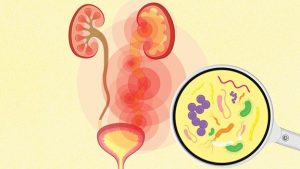Ever feel like you’re under so much stress you can barely function?
Well, stress may be impacting you in ways you don’t even realize. All that anxiety and pressure you’re under could be damaging your fertility. Yes, you read that right. Your stress levels can directly affect your ability to conceive. The good news is, there are effective ways to better manage your stress and safeguard your fertility.
Read on to learn exactly how stress impacts your fertility and fertility-friendly ways to find your zen.
It’s time to embrace womanhood!

Stress and Your Reproductive Health: The Hidden Connection
While stress is an unavoidable part of life, chronic or long-term stress can wreak havoc on your reproductive system. Both women’s and men’s fertility and sexual health can take a hit when stress hormones like cortisol are elevated for extended periods.
Stress and Fertility: An Unexpected Connection
Have you been trying to get pregnant for a while now with no luck? Stress could be a culprit. Here’s how:
Stress and Your Hormones
Chronic stress causes your body to pump out cortisol, the “stress hormone.” Too much cortisol can disrupt your reproductive hormones like estrogen and progesterone, making ovulation and implantation more difficult.
Stress and Your Menstrual Cycle
Under high stress, your menstrual cycle can become irregular or even stop. If you’re not ovulating regularly, getting pregnant will be challenging. Managing stress levels is key to regulating your cycle and boosting your fertility.
Stress and Your Overall Health
Constant stress takes a major toll on your health and well-being. It impairs your immunity, blood pressure, and sleep. All of these effects cascade and negatively impact your reproductive health and fertility. Prioritizing self-care with exercise, meditation, yoga or deep breathing can help combat stress and increase your chances of conceiving.
The good news is, stress is often manageable. Making lifestyle changes to minimize stress along with patience and perseverance can help make your dream of becoming pregnant come true. Stay positive – you’ve got this! Reducing stress will have far-reaching benefits for your health and happiness.
How Stress Impacts Hormones and Reproduction?
Stress impacts your body in so many ways, including your fertility. When you’re stressed, your body pumps out hormones like cortisol that can interfere with reproduction.
How Stress Impacts Hormones?
Cortisol and other stress hormones disrupt the delicate balance of estrogen, progesterone, and testosterone in women and men. In women, too much cortisol can cause irregular or missed periods by disrupting the menstrual cycle. In men, it may lower testosterone and sperm production.
Chronic stress also impacts hormones that stimulate ovulation and control menstruation. If you’re constantly in fight or flight mode, your body won’t release as much of the hormones needed to support a healthy reproductive system.
Impacts on Intercourse and Conception
Feeling stressed or anxious can also lower your libido, making you less interested in sex. And even if you are in the mood, stress hormones may make it more difficult to conceive.
In women, stress can cause the cervical mucus to become too thick or acidic for sperm to survive. It may also constrict fallopian tubes, blocking eggs from reaching the uterus.
In men, stress leads to lower sperm counts, poor sperm health, and less frequent ejaculation – all of which reduce the chances of conception.
The good news is, that reducing stress through exercise, meditation, acupuncture, or counseling can help improve your fertility. Managing stress takes effort, but bringing more balance and calm into your life will benefit your health and conception journey. Your future baby will thank you!
Tips for Reducing Stress to Boost Fertility
Tips for Reducing Stress to Boost Fertility
Reducing stress is one of the best things you can do for your fertility and overall health. Chronic stress negatively impacts your reproductive system in many ways.
To decrease tension and anxiety, try the following techniques:
- Practice deep breathing: Taking some deep, slow breaths can help lower your stress levels quickly. Try breathing in through your nose and out through your mouth, making your exhale longer than your inhale. Do this for 5-10 minutes a day.
- Get some exercise: Go for a walk or jog, do some yoga, or just get outside for some fresh air and light activity. Exercise releases feel-good hormones that counteract the effects of stress. Even taking a 30-minute walk a few times a week can help tremendously.
- Limit alcohol and caffeine. Both of these stimulants can exacerbate feelings of stress and anxiety. Cut back or eliminate them from your diet, especially in the afternoons and evenings.
- Get enough sleep: Aim for 7 to 8 hours of sleep per night to allow your body and mind to rest. Lack of sleep can intensify stressful feelings.
- Try meditation or mindfulness: Spending just 5 or 10 minutes a day focused on your breathing or the present moment can work wonders for decreasing stress. Many free apps and YouTube videos offer guided meditations.
- Connect with others: Call a friend, join an online support group, or talk to a counselor. Social interaction and support from others can help alleviate stress and brighten your mood.
Making a few lifestyle changes and practicing self-care can significantly lower your stress, boost your fertility, and lead to greater peace of mind and well-being. Give a few of these tips a try – your body and baby-making abilities will thank you!
So, there you have it, stress can do a real number on your fertility. When your body feels under attack, getting pregnant is not a top priority from an evolutionary perspective. The good news is you have the power to change this.
By incorporating a few simple stress relief techniques into your daily routine like meditation, yoga, limiting caffeine, and exercising regularly you can lower your cortisol levels and increase your chances of conceiving. Reducing stress may be one of the most important things you can do if you’re trying to get pregnant. So, take a deep breath and remember what matters – your health and happiness. Your future baby will thank you for it!







